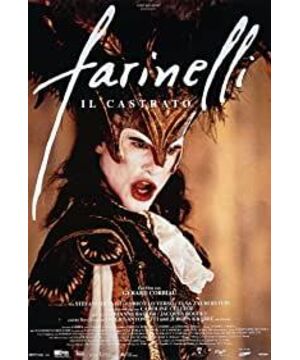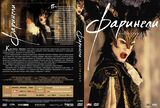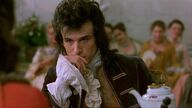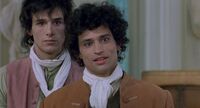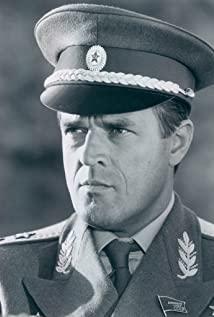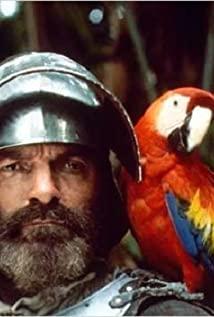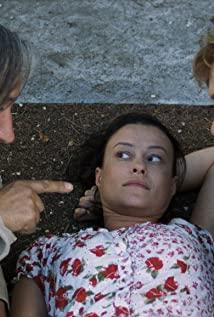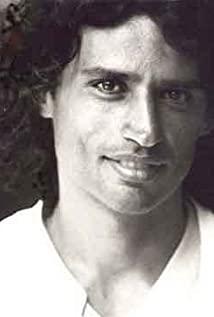Farinelli is probably the movie I've watched the most. After my friend from the conservatory of music recommended it to me in the third year of high school and lent me the soundtrack, I have never stopped exploring and pursuing this character and this movie. I don't understand why castrat singers have such a huge attraction to me, maybe it was because of our chance encounter, when I was young, I just heard about it in a documentary on the music channel that this is almost orthodox music history education in China The story of the forbidden castrato in the book, I can't remember the shock and novelty it brought me at that time, but this term is deeply imprinted in my heart, I have forgotten any details, remember There are only two people who live there. One is the bald man on the bar of the bar, hiding beside the car and sings a touching song with falsetto. Regarding the voice of the castrato, which is praised almost astonishingly, it is in line with my usual creed: good things come in exchange for great pain. I don't care if I remember the information and knowledge that the documentary left me, it's just like a seed sown in the ground, waiting for Farinelli to wake up. I have to admit that after listening to Farinelli's electronically imitated voice, I was completely hooked, from his first vibrato, the song unfolded in front of me as a door, hidden behind it. All kinds of unknowns, but I am sure that it is full of beautiful mystery and beyond imagination, and I am amazed and surrendered to it and indulge in it and never regret it, just waiting for me to open it. So, when I bought Farinelli's DVD by chance, my long-cherished wish, which was so huge and regrettable from the beginning, was easily fulfilled. It is conceivable that I was holding great The anticipation and a little curiosity of watching Farinelli for the first time. However, Farinelli is not for those who are curious about an unknown and abnormal form. I have not yet had enough experience and knowledge to understand the ideology and ideology of the era described in this film and the people in it. The way of thinking, I didn't realize that the Baroque period had the aria or the Messiah on the G string that we still admire and admire, but it was still an era so far away from us that we needed Thinking from the perspective of that era, the first interpretation of Farinelli seemed a complete failure to me, but the music in it still effortlessly convinced this ignorant but arrogant girl. I don't know how In this way, I regained my interest in this character other than Farinelli's music itself. However, after watching the movie for the second time, I dare to say that I have gradually opened the fan that has been in front of me for a long time and has been tempting me. It was like a gate that was purposely closed to me. From then on, every grass and tree in the garden that belonged to the music muse and the butterfly blue bird flew out with a bang. If possible, I would like to go back to 300 years ago, every day on the bed in the morning mist, I was awakened by the nightingale's slightly happy and trembling voice that was covered with the moonlight and the freshest dew all night. , to see the sun shining through the clouds, and my nightingale is named Farinelli. Even the gaudy, hollow music of Riccardo, who was demoted to nothing by Handel, had too many dazzling ornaments and vibrato, and when it came out of Farinelli's mouth, it was still wonderfully beautiful and seemed to come alive. Farinelli can easily destroy any talented or mediocre composer while giving life to the music he sings. When he opens his mouth, all inspiration is instantly captured by his moving voice and exquisite beauty. When you pick up the pen again, it is no longer the worship of the music muse that haunts your mind, only Farinelli, every syllable and every symbol written on the score is only born for him, From now on, the throne in your heart is only the king of Farinelli, so you will no longer have any pursuit or yearning. In this way, Farinelli is deadly. Between the singer and the music, the former is obviously stronger, so the delicate balance between the two is broken. When the latter is completely weak and completely dependent on the former to survive , it was not only the older brother Riccardo, who was apparently mediocre and wretched compared to Farinelli, who fell into the abyss, but also Farinelli himself. Riccardo (Ah, this wretched and unfortunate guy has the same name as my Muti, it's just too slaughtered to be outraged!) and Farinelli, I never deny that Riccardo needs Farinelli completely, he is far less musically accomplished than his younger brother This fact was already obvious when the two of them were young. The operation that year was probably because of the nostalgia for the angelic voice that was destined to fade away as his younger brother grew up. He is a music madman who has no pursuit or purpose of life except music. Handel is also such a person, but unfortunately, Ri ccardo believes that the charm of music comes from the most standard and perfect interpretation of each tone. In other words, Riccardo has long been aware of his incompetence and lack of talent, but fortunately and fair God gave him a brother who is like a myth, keeping Carlo by his side forever, and letting the angels only serve him for him. Singing, he can have everything, his music, his future, his money, including women... Without his Carlo, he has nothing. He said smugly in front of Handel that Carlo only sang Riccardo's music. It seems that what kind of master and agent he is, has made Farinelli what he is today, but I don't know that this is showing people how he can only survive by relying on his younger brother, and he is shameless and self-righteous. Handel may be the first person to openly despise Riccardo without caring about Farinelli's ideas and face: Riccardo ruined Farinelli, he made Farinelli fall from an angel to a singing machine. Perhaps, Riccardo's only contribution to Farinelli is that he was the one who moved the knife. The beginning of a tragedy is also a legend. Handel is a true master, and he is deeply in love with Farinelli from beginning to end, and only a master who has written so many masterpieces for his music can not be moved by Farinelli's voice , he is also a person who only loves music, and his love is deeper and closer to the essence than Carlo and Riccardo at that time. What he wants is the most emotional singing, not the perfect interpretation of every note, so in his In his eyes, he had to admire and despise Farinelli at the same time, because the voice was God's masterpiece, so even when the two were in a state of rivalry and incompatibility, he was still chasing Farinelli's singing; contempt was because , This angel is so arrogant and proud that he doesn't even pay attention to the music itself. He sings not to convey the emotion in the song, but to simply show off his voice to win the love and affection of those superficial ladies. Fainting, his voice can make a piece of music, but also can easily destroy the music itself. Handel, who has always been known for his irascible temper and pride, is obviously not a good teacher. His enlightenment to Farinelli began with the bad friendship between the two, and he humiliated Farinel so much. li, this peerless actor, never heard any praise and appreciation from Handel's mouth, only criticism and scolding, but in the end Farinelli's "Let Me Cry" made him faint in the audience because of his excitement. It's just that Handel's pursuit of music and the requirement of a perfect state destined that when the two of them finally reached an agreement and reconciled, it was the time when Farinelli's heart was broken. Farinelli has never sang with his heart, because if he sings with his heart, he is destined to break his heart first, face the reality with great grief, and break with his past, including his brother, which he thought represented all of him, so he was always afraid of giving up of. Son qual nave ch' agitata is my first song on the original sound, but the cheerful tune does not seem to have the stability and purity of the baroque period, it is too fancy and gorgeous, but I have to deny that these useless ornaments and vibrato, although they only convey the same innocence The meaning is impetuous and inexplicably happy, but it sets off Farinelli's voice particularly dazzling. After the melody as smooth as water, those slight vibrato seem to be the slight trembling pain of a bird's wound, enduring the huge pain and still with it. He sang heartily with blood stains, and his music fanaticism made him forget all the pain and fell into excitement. This may be the blind happiness of Carlo and Riccardo, but they have no other choice. They seem to be intimate, but in fact they are separated by thousands of miles of ocean. The only thing that can temporarily bridge this huge gap and cover up the wound is the lie that must be repeated to convince Farinelli, and the Oedipus that will never be finished but one who is still working tirelessly to create an "Oedipus" that always seems to be waiting with anticipation. King of Sri Lanka. Perhaps these two have long been self-evidently seen as phantom shadows, but they would rather create and continue and believe the lie, they can only deceive themselves. Or Riccardo is true and confident that these lies can always cover up the truth and maintain brotherhood, keeping Carlo by his side; and Farinelli, he can only choose to let himself be completely forgotten, he dare not face himself and the biggest in life. Even if it brought him endless fame and money, if he digs into the reason behind it, he knows that he has long understood the truth, but he has buried the answer deep in his heart and even dared not go to it. Take a look, because with just one look, he knows that "Oedipus the King" will never be completed, everything he has, those he trusted and loved in the past will be subverted and destroyed in an instant, if a person's past is completely subverted, then What a terrible thing, how much courage he should have to build the cornerstone that has collapsed, let alone the cornerstone under his feet. Maybe Riccardo has been working hard to finish "Oedipus Rex". This vow itself shows that he knows he is ashamed of Carlo. This is the only way he can make up for it. There is only music in your life. All I can give you is the best music. However, just as Webber wrote "The Phantom of the Opera" because of his love for Sarah, love can produce the best work, but guilt can't. What's more, maybe Riccardo loves himself more than Carlo. I thought Farinelli was more What a pity, he trusts his brother so completely, he doesn't hesitate to defend his brother by spitting on the face of Handel, the master he admires the most, but he doesn't know that Riccardo has never thought of himself so much, from Farinelli , Riccardo got much more than he paid. However, now that I think about it, Farinelli may be maintaining not so much his brother, but his own memory that is built on a false foundation. He has nothing but music, has no dignity as a man, and even his memories are false; even if it is the so-called music, unfortunately he met a bad enough teacher. Farinelli can only satisfy himself with empty jumping notes and eight-bar breathless long notes. He has no better, and can't afford better. Pain, Farinelli should have been in pain all the time. His delicate and delicate facial features always seem to have a playful expression on his face, as if he despises all the vulgar things in the world. . He never longed for the dignity of a man, so he finally hoped to have his own children, so he sang so hard in order to get the applause and applause of others, he thought that in the applause and applause, there would be a love for him. Respect, since the dignity a man was born with has been lost, he will try to use his innate talent, the skills that make it dignified, in exchange for his dignity, so in the end, when he reached the peak of his career in England and even defeated When he went to Handel's theater, he thought he had finally succeeded, so he proposed to the woman, but was rejected. That was his biggest humiliation, no matter how famous he was, he was still just a Castrato. Handel may be even more rude, you are just a eunuch, you only exist for music, not music for you, without music you are nothing. So you are neither capable nor qualified to pursue anything other than music and its own mysteries. However, how does Farinelli pursue the essence of music? Because his music itself is built on deceit and hurt. If the past is unbearable, either choose to be numb and sink in it, or choose to wake up and break. He hoped to have enough courage to make such a decision, but before finding this way, he was only numb, repeating to himself over and over again in the opium that everything came from an accident of falling from a horse. so , Handel's appearance shook Farinelli's world. He boldly and mercilessly exposed the falsity and superficiality of the world contained in Farinelli's music, as if it were a play, and his life and emotions are far deeper than this. What he showed Farinelli was another way of living and singing that Farinelli had never learned before. Handel did not let Farinelli break with Riccardo. In fact, Farinelli had already prepared and expected to do so, and Handel just pushed the wheel of this inevitable fate. When Farinelli turned his head and drew inspiration from the deep emotional pain of his own past, he no longer needed his brother, and parting was a given. And without Carlo, Riccardo was finally released from his imprisonment. While he killed Carlo's ego, he also lost his ego long ago. In the end, "Oedipus the King" was written, not so much as Riccardo's confession, but as a proof that this sad brother finally found himself, and has nothing to do with Farinelli. And Alexandra gave Farinelli the true love that a man was fortunate to get. That child was the sworn compensation that Riccardo gave Farinelli. Wherever he took it, he would return it. In fact, Farinelli has never seen Handel in his life, and has never met him. Although Handel wrote a lot of wonderful songs for the castrato, Farinelli spent most of his life in the Spanish court to drive away the sun for Philip V. Queen of the Shadows. Originally, "this song should only be found in the sky, why should it be demanded". Perhaps this is the safest and most beautiful way of life for him. world. He boldly and mercilessly exposed the falsity and superficiality of the world contained in Farinelli's music, as if it were a play, and his life and emotions are far deeper than this. What he showed Farinelli was another way of living and singing that Farinelli had never learned before. Handel did not let Farinelli break with Riccardo. In fact, Farinelli had already prepared and expected to do so, and Handel just pushed the wheel of this inevitable fate. When Farinelli turned his head and drew inspiration from the deep emotional pain of his own past, he no longer needed his brother, and parting was a given. And without Carlo, Riccardo was finally released from his imprisonment. While he killed Carlo's ego, he also lost his ego long ago. In the end, "Oedipus the King" was written, not so much as Riccardo's confession, but as a proof that this sad brother finally found himself, and has nothing to do with Farinelli. And Alexandra gave Farinelli the true love that a man was fortunate to get. That child was the sworn compensation that Riccardo gave Farinelli. Wherever he took it, he would return it. In fact, Farinelli has never seen Handel in his life, and has never met him. Although Handel wrote a lot of wonderful songs for the castrato, Farinelli spent most of his life in the Spanish court to drive away the sun for Philip V. Queen of the Shadows. Originally, "this song should only be found in the sky, why should it be demanded". Perhaps this is the safest and most beautiful way of life for him. world. He boldly and mercilessly exposed the falsity and superficiality of the world contained in Farinelli's music, as if it were a play, and his life and emotions are far deeper than this. What he showed Farinelli was another way of living and singing that Farinelli had never learned before. Handel did not let Farinelli break with Riccardo. In fact, Farinelli had already prepared and expected to do so, and Handel just pushed the wheel of this inevitable fate. When Farinelli turned his head and drew inspiration from the deep emotional pain of his own past, he no longer needed his brother, and parting was a given. And without Carlo, Riccardo was finally released from his imprisonment. While he killed Carlo's ego, he also lost his ego long ago. In the end, "Oedipus the King" was written, not so much as Riccardo's confession, but as a proof that this sad brother finally found himself, and has nothing to do with Farinelli. And Alexandra gave Farinelli the true love that a man was fortunate to get. That child was the sworn compensation that Riccardo gave Farinelli. Wherever he took it, he would return it. In fact, Farinelli has never seen Handel in his life, and has never met him. Although Handel wrote a lot of wonderful songs for the castrato, Farinelli spent most of his life in the Spanish court to drive away the sun for Philip V. Queen of the Shadows. Originally, "this song should only be found in the sky, why should it be demanded". Perhaps this is the safest and most beautiful way of life for him. return it. In fact, Farinelli has never seen Handel in his life, and has never met him. Although Handel wrote a lot of wonderful songs for the castrato, Farinelli spent most of his life in the Spanish court to drive away the sun for Philip V. Queen of the Shadows. Originally, "this song should only be found in the sky, why should it be demanded". Perhaps this is the safest and most beautiful way of life for him. return it. In fact, Farinelli has never seen Handel in his life, and has never met him. Although Handel wrote a lot of wonderful songs for the castrato, Farinelli spent most of his life in the Spanish court to drive away the sun for Philip V. Queen of the Shadows. Originally, "this song should only be found in the sky, why should it be demanded". Perhaps this is the safest and most beautiful way of life for him.
View more about Farinelli reviews


